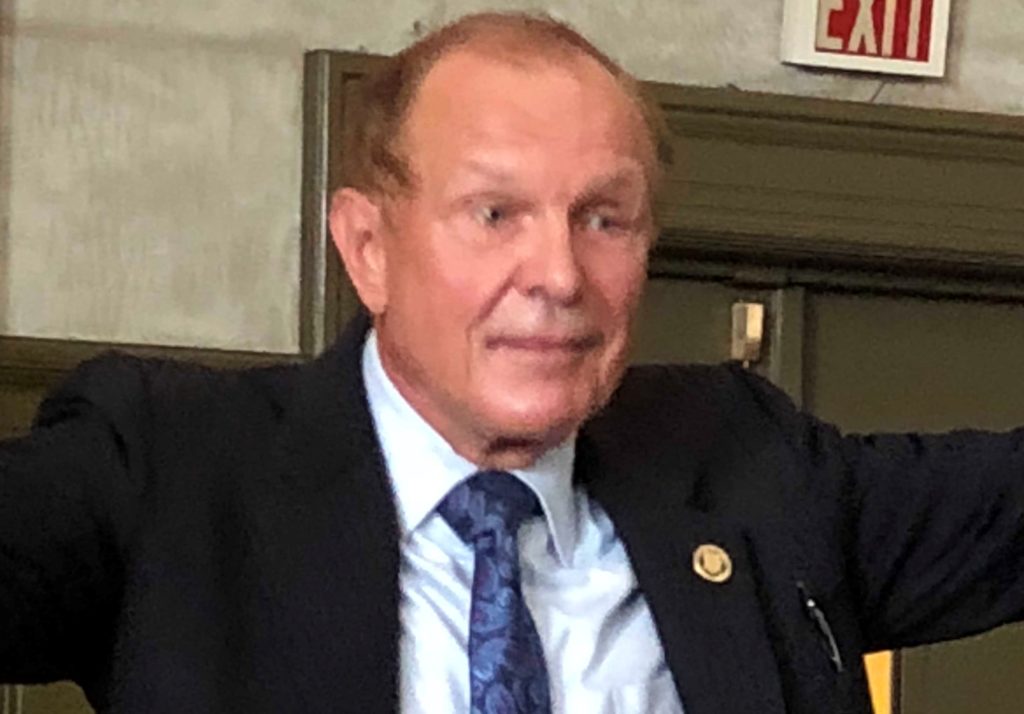NJEDA Tax Incentives: Two Tales, One City
Listen to audio version of this article

TRENTON - The politics of it all is simple.
One side says NJEDA tax credit grants benefit the political buddies of those doling them out.
The other side says these grants are a lifesaver for depressed places like Camden.
Both views were on display Tuesday as a task force investigating [bubbleAutoLink text="state tax incentive programs" id="55148"] held its third hearing. The task force was formed by Gov. Phil Murphy who has questioned why the state over the years has awarded an estimated $11 billion in tax credits. Many of these were awarded under the administration of Chris Christie, a big booster of the idea.
A recent task force report raised questions about the propriety of some grants going to Camden businesses associated in various ways with south Jersey political boss George Norcross. The report highlighted what was at best, favorable treatment to Norcross-connected firms, and at worst, outright fraud.
Most of the morning session was devoted to more than a dozen speakers, many from liberal groups, condemning the grants. We heard complaints that the Economic Development Authority grants were simply a way to "enrich" those with the right connections and dismay that the whole thing benefitted "one family."
Author and labor advocate Les Leopold noted that many states have tax incentive programs of various stripes. That, he said, allows corporations to essentially "blackmail" states until they get what they want.
But there was also the other side.
Former state Senator Ray Lesniak of Union County, one of the few morning speakers to support the incentive program, said they're essential to redeveloping abandoned urban areas. As an example, he cited the development of the Jersey Gardens Mall on an old dump in his hometown of Elizabeth.
But it was the afternoon session that was the most emotional.
A man who said he has worked with non-profits in Camden for 50 years began talking about seeing companies in the past "come and go." But then he corrected himself to say he has seen many go, but few come.
He and others said EDA grants have provided hope to the city by recently luring businesses that surely would not have come without help from the state.
The mayor, Frank Moran, clearly sensing the ongoing political crossfire between Murphy and Norcross, pleaded with the task force, "Let us not be the ones who pay the price." The mayor said new development in Camden has helped reduce crime, raise graduation rates and very simply, make a city of 70,000 (it once had 140,000 people) more livable.
He then invited the task force to hold a hearing in Camden, even offering to close down a street and hold a meeting outside, a true community event, if you will.
One taking all this in is left with a conclusion that seems contradictory, but really isn't.
Both sides could be right.
State tax incentives are needed, but the program has to be run legitimately. That means no political favors. This isn't easy. Politicians do favors for their friends as a matter of course.
Would both sides agree? Some probably would. Then again, some wouldn't.
Lesniak had praised tax breaks that prompted Panasonic to move from Secaucus to Newark as opposed to out of state. A an hour or so later, a young man rose and said he has worked for Panasonic in Newark and that the company really wasn't hiring city residents. But they did hire him, which would not have happened if Panasonic moved to, say, Atlanta.
Later, a defender of the grant programs said he didn't care what Holtec International put on its application because it has the potential to do great things for Camden.
Ugh.
What Holtec did not put on its application, according to the task force, was that it had paid off an employee of the Tennessee Valley Authority to secure contracts with the authority. That is the type of fraud that can not be overlooked.
And there lies the challenge for the task force, and the state itself - setting up a program that treats all businesses equally and that doesn't go overboard.
This, of course, may be impossible, given the nature of politics.
In one revealing exchange, Gerry Keenan, the executive vice president of the pro-business New Jersey Alliance for Action, repeatedly told the task force, "Tax incentive programs work."
That eventually prompted co-counsel Jim Walden to ask Keenan if a tax credit that in effect gave a company a "free" building was too generous.
Keenan wasn't pleased with the query, saying, "Do we really want to get into specifics?"
Yes, we do. And that's why devising a fair program is far more complex than the simple politics surrounding it.





